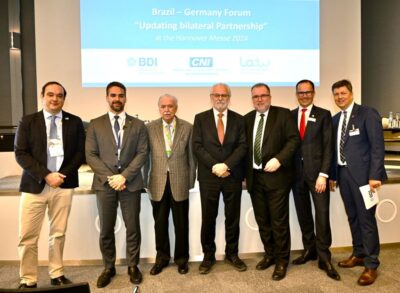Chile offers itself to the EU as an energy partner
Madrid, Paris, Berlin and London – these were the stops on the week-long trip of Nicolás Grau, Chilean Minister of Economy, Development and Tourism. He visited Europe at the end of September to attract new investment to his country. The timing is favorable: with its large reserves of critical raw materials such as lithium and its high potential for renewable energies, the Andean country is increasingly becoming the focus of the EU – also in view of the current energy crisis in Europe.
Chile is suitable for long-term investments, Grau explained in a meeting with German business representatives in Berlin on September 30. The country with its nearly 20 million inhabitants has a stable democracy with functioning institutions. This was demonstrated not least by the current constitutional reform: At the beginning of September, 62 percent of Chileans rejected the draft drawn up in recent months, but a new process is underway. And all this without political unrest, which still swept the country in 2019.
Many opportunities are also attracting foreign investors to Chile in sectors such as mining, energy, digitization or logistics. The country is on its way to becoming an important supplier of competitive green hydrogen. Germany and Chile have already been linked by an energy partnership since 2019. As part of this, Siemens Energy is working with Porsche and other partners on the “Haru Oni” project to generate green hydrogen and its derivatives in southern Chile.
The modernization of the trade agreement with the EU, which has been in place since 2002, also holds great opportunities for bilateral cooperation with Chile. At the technical level, negotiations for the modernized agreement were concluded in October 2021. Both sides are currently preparing the political conclusion.
A tax reform being prepared by Grau’s ministry is intended to make Chile more attractive for investment. Companies and consumers are currently struggling with the highest inflation rates in the last 30 years. This tax reform could also improve the basis for negotiations on the missing double taxation avoidance agreement between Germany and Chile. In the current situation, German business would very much welcome any relief for trade and investment.






